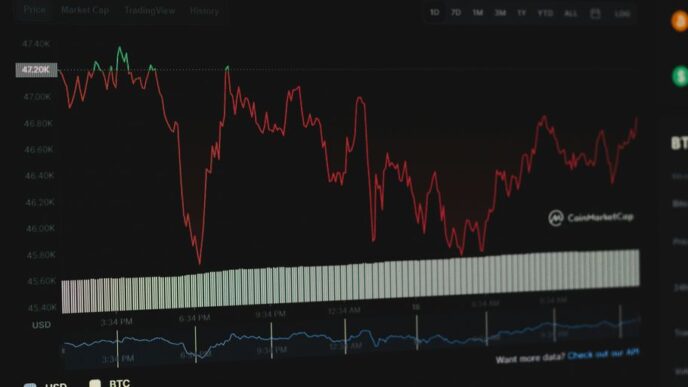The rapidly changing scenario of the logistics industry is taking place with rapid strides since automation technologies have transformed how warehouses operate. From robotics to the picking and packing of goods by AI optimizing the processes in the supply chain, warehouse automation will enlighten the way goods are stored, sorted, and shipped in the future. All these for a logistics company in Kolkata, would mean future-proofing in competitive aspects through these technologies to ensure efficiency, cost-effectiveness, and satisfying the customers.
The Growing Need for Warehouse Automation
The global demand for faster delivery has also affected the impact of warehouses that the e-commerce boom is creating. The traditional manual operations hardly match up to the high volume of orders that have to be processed, with complicated inventory management and a complete time crunch for deliveries.
Especially for businesses situated within a busy logistics hub like Kolkata, warehouse automation isn’t just a fad but an absolute necessity. The benefits associated with it include reduced labor costs, improved accuracy, enhanced speed, and ‘easy’ scalability-the most essential requirements for a logistical company wanting to survive and cater to the ever-changing market needs.
The Role of Robots in Modern Warehousing
Robotics occupies an important position in warehouse automation, performing tasks that had involved an investment of time and were known to fail in the form of human error. They include:
- Automated Guided Vehicles (AGVs):
Using pre-defined paths, these robots carry out the movement of goods between their storage areas and packing zones. AGVs are suitable for logistics companies managing large areas in Kolkata, where uninterrupted flow of goods is a major concern. - Autonomous Mobile Robots (AMRs):
Unlike AGVs, which are programmed to follow fixed physical paths, AMRs can move independently, adapting to changeable environments. They also operate at an enhanced level of performance in sorting, picking, and replenishing inventory. Instead of searching to common-all-time, AMRs have efficiency in sorting, picking, and replenishment. - Robotic Picking Systems:
Armed with really complex vision systems, these robots can really identify, pick, and sort items with much precision. This greatly reduces picking mistakes, which have effects on almost every logistics company with a diversified portfolio in terms of the products around which they operate. - Robotic Arms:
These have been a driving force in packing, palletizing, and unloading processes, speeding things up while reducing injuries on site.
Artificial Intelligence: The Brain Behind Automation
Artificial Intelligence (AI) is a key factor in warehouse automation. By analyzing huge volumes of data, it can optimize inventory management, predict demand patterns, and streamline workflow processes. Here’s how artificial intelligence impacts logistics operations:
- Smart Inventory Management:
AI-supported systems keep track of inventory levels in real-time; thus, essential items will never run out in the warehouse. This improves inventory management in the best logistics company in Kolkata to attend to clients’ demands effectively. - Demand Forecasting:
AI makes it possible to foresee seasonal trends and consumer behavior and helps prepare warehouses to deal with the changes. It leads to the minimization of overstocking and understocking issues. - Route Optimization:
Timely delivery is crucial in logistics, making AI an important factor. AI considers traffic, weather, and everything else that cause delays and potential cost overruns in arriving at an efficient delivery route, time, and cost. - Error Reduction:
AI-based quality control measures established ensure that deficiencies and errors are detected in the supply chain before dispatching the goods.
The Internet of Things (IoT): Connecting the Warehouse
IoT technology incorporates sensors, devices, and systems in a warehouse to allow real-time monitoring and communication. In logistics businesses, IoT increases operational transparency and forms a better basis for decision-making. Some of the application areas include:
- Asset Tracking: They are equipped with sensors for asset tracking, and through these sensors, you receive live updates for their location as well as conditions.
- Environmental Monitoring: Another factor is environmental monitoring like IoT devices that monitor temperature and humidity, as well as other factors that are critical for the storage of perishables.
- Predictive Maintenance: IoT systems identify potential equipment failures long before they occur, and in doing so, it minimizes the downtime and costs of maintenance.
The Integration of Automation in Kolkata’s Logistics Scene
One of the key factors in eastern India, is rightly famous for its flourishing and extremely vibrant logistics sector. The city’s geographical location as well as its expanding industrial base provide a huge potential for warehouse automation. Currently, local logistics companies are integrating automated systems to cope up with the increasing order volumes so that inefficiencies in operations can be minimized.
Take a logistics company in Kolkata, for example, which may have installed robotic sorting systems to increase the speed of operation for processing shipments under the order of same or next day delivery options. Besides, AI-driven inventory management systems facilitate the businesses to stock a variety of product categories to cater to varied needs, be it of B2B clients or B2C clients.
Challenges in Adopting Warehouse Automation
The advantages of automation are numerous but its implementation has its drawbacks:
- High Initial Investment:
Purchase of robots, AI systems, IoT devices, etc., all cost a lot of money, which can act as a bottleneck toward spending for small and mid-size logistics companies. - Skilled Workforce:
Technical understanding is necessary for operating automated systems or maintaining them. The current workforce is either to be trained or new professionals hired. - Integration with Legacy Systems:
A large number of warehouses still have outdated systems that are difficult to connect with automated technology. - Data Security:
With the increasing importance of a digital system, the protection of sensitive business data becomes highly prioritized.
Future Trends in Warehouse Automation
However, the futuristic panorama in the warehouse automation within advances are as follows:
- Collaborative Robots (Cobots): Collaborative robots work alongside human workers productively complementing them rather than replacing them.
- Blockchain in Logistics: Blockchain Logistics or blockchain is going to ensure transparency and traceability in supply chains along with warehouse automation.
- Green Warehousing: Developing automation technologies which consume less energy and waste and are more eco-friendly.
- Drone Deliveries: Now, drones could be used in the last mile delivery, with warehouse systems integrating their operations for better coordinated dispatch.
How ShipZip is Embracing the Future
The reality has dawned, concerning the transformation that is possible with warehouse automation. This is why the best logistics company in Kolkata prides itself on being one of the top logistics companies. The company is committed to investing in high-end technology that would allow them to offer excellent services. From implementing AI systems for efficient inventory management to seeking IoT solutions for real-time tracking-in summary, we are at the cutting edges in innovations.
The aim is to provide our clients with dependable logistics solutions-fast and most cost-effective. With warehouse automation, they are sure that anything of yours will be handled exceptionally well and delivered on time-every time.
Conclusion
Warehouse automation is no longer a luxury; it has become a necessity for a logistics company struggling to overcome the competitive edge now. Robots, AI, and IoT bring a real change to the operation of warehouses, allowing faster and accurate processing of goods. A logistics company based in Kolkata must adapt to these technologies to respond to the changing industry.
Automation is the future. It provides efficient solutions to businesses improving any process. It builds a logistics foundation in any business that can withstand the challenges to come by adapting into new modes in the future. So, at ShipZip, we’re proud to offer these advanced solutions to clients around Kolkata and beyond.












